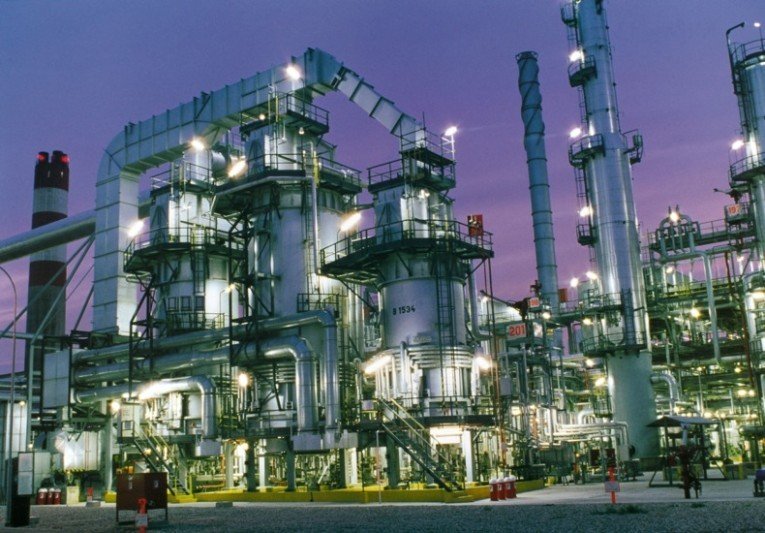
 Shell Companies in Nigeria have restated their long-term commitment to the Niger Delta, saying they would continue operations in the oil-rich region despite the spate of militant attacks in recent days.
Shell Companies in Nigeria have restated their long-term commitment to the Niger Delta, saying they would continue operations in the oil-rich region despite the spate of militant attacks in recent days.
Shell has also denied evacuating its personnel from the region, saying that it was monitoring the security situation in the region very closely.
A militant group, which has identified itself as Niger Delta Avengers (NDA), had attacked Chevron’s facilities in the Escravos area of Delta State.
The twin attacks affected the Escravos-Warri pipeline, which feeds the Warri and Kaduna refineries, cutting off crude feedstock to the two facilities.
Thisday reports that while Chevron has reportedly evacuated staff from the affected facilities, Shell said it would continue to monitor the security situation in the region.
Responding to enquiries, a Shell Nigeria spokesman, Mr. Precious Okolobo said that the company was taking all possible steps to safeguard its staff and contractors.
“We continue to monitor the security situation in our operating areas and are taking all possible steps to ensure the safety of staff and contractors. We do not wish to go into details. Our operations are continuing,” Okolobo explained.
The spokesman of the new militant group, Mr. Mudoch Agbinibo, had placed the blame for the attacks on the doorstep of ex-militant leader and senior Ijaw traditional chief, Chief Government Ekpemupolo, better known as Tompolo.
The group, which claimed responsibility for the attacks, warned politicians, traditional rulers and other influential individuals in the oil-rich region to stop their meddlesome activities and selfish politicking aimed at putting them in the good books of the federal government.
The NDA spokesman alleged that last Thursday’s attack was pursuant to the three-day ultimatum given to Tompolo “to apologise” to the group for allegedly insulting it.
Agbinibo said that the attack was merely in fulfillment of NDA’s threat to launch an attack on an oil installation within Tompolo’s enclave in Ijaw Gbaramatu Kingdom.
While “Team 6” of the group was said to have carried out Wednesday’s attack successfully, Thursday’s operation was carried out by its “Team 4”, the group had said, stressing its determination to deal a deadly blow on oil and gas production in Nigeria.
“This is a clear warning to all the Niger Delta politicians, traditional rulers, community leaders, and the likes of Tompolo to mind their businesses and leave the liberation of the Niger Delta people to the Avengers; and to those who believe taking sides with (the) federal government to fight Niger Deltans is the best option,” NDA had warned.
With the resurgence of militancy in the oil-rich Niger Delta region, the United States Energy Information Administration (EIA) is estimating that Nigeria loses 500,000 barrels of crude oil per day to sporadic supply disruptions, which have resulted in unplanned outages.
EIA said in its latest report that although Nigeria is the largest oil producer in Africa, with the largest natural gas reserves on the continent, as well as the world’s fourth-largest exporter of liquefied natural gas (LNG) in 2015, the country’s production is affected by sporadic supply disruptions.
“Nigeria is the largest oil producer in Africa and is among the world’s top five largest exporters of liquefied natural gas (LNG). Supply disruptions, typically caused by pipeline sabotage from thieves siphoning crude oil and condensate, are common in Nigeria’s oil and natural gas industries.
“Pipeline sabotage and oil supply disruptions have increased in 2016, leading to a decline in Nigeria’s crude oil production. Because Nigeria heavily depends on oil revenue, its economy is noticeably affected by changes to its oil production and/or to global crude oil prices,” said EIA.
Citing a recent report by the International Monetary Fund (IMF), EIA said the report revealed that Nigeria earned $52 billion from oil and gas exports in 2015, $35 billion less than in 2014, which was mostly attributed to the fall in oil prices that began in the middle of 2014.
EIA noted that while Nigeria’s oil production was hampered by instability and supply disruptions, the country’s natural gas sector is restricted by the lack of infrastructure to commercialise natural gas that is currently flared.
